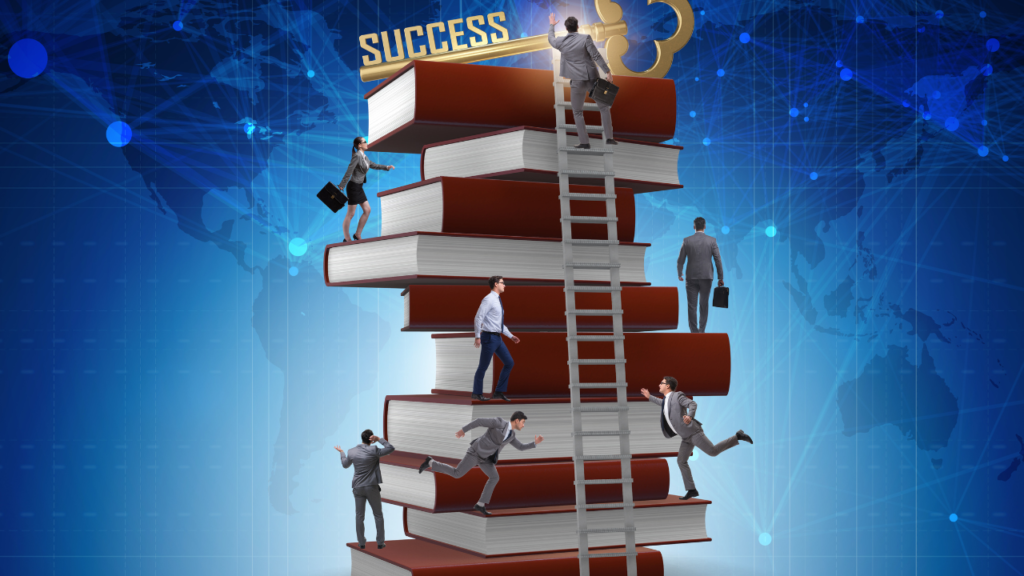
True education “Beyond the Classroom: Unveiling the Essence of True Education”
- March 17, 2024
- 6:30 pm
- No Comments
True education, in its most profound sense, transcends the mere accumulation of facts and figures; it is an expansive, life-long journey that molds the holistic development of an individual. It represents not only the acquisition of knowledge but also the refinement of one’s character, the expansion of one’s perspective, and the cultivation of a deep-seated sense of responsibility towards oneself and the world at large.
Intellectual Development
At its foundation, true education nurtures the intellect. It encourages critical thinking, problem-solving, and the ability to question and reason. A truly educated individual does not passively accept information but actively engages with it, challenges it, and seeks to understand its implications. This process is vital in fostering innovation and creativity, enabling individuals to contribute original ideas and solutions to society.
Moral and Ethical Growth
Moreover, true education places a significant emphasis on moral and ethical growth. It teaches individuals to differentiate between right and wrong and to appreciate the value of honesty, integrity, and respect. This aspect of education is crucial for developing individuals who not only excel in their professional lives but also lead by example in their personal lives, promoting a culture of kindness, understanding, and fairness in every interaction.
Emotional Intelligence
An often-overlooked component of true education is the development of emotional intelligence—the ability to understand and manage one’s emotions and to empathize with others. Emotional intelligence is fundamental for building strong relationships, navigating social complexities, and making thoughtful decisions. It is this quality that enables individuals to work collaboratively, resolve conflicts effectively, and contribute to a cohesive and productive community.
Cultural Competence
True education also fosters cultural competence, encouraging learners to appreciate the diversity of cultures, beliefs, and values that make up the human tapestry. Understanding and valuing diversity not only enriches one’s own life but also fosters mutual respect and peaceful coexistence. In a globalized world, cultural competence is indispensable for fostering international cooperation and understanding.
Lifelong Learning
Importantly, true education instills a love for lifelong learning. The quest for knowledge and understanding does not end with formal education; rather, it continues throughout one’s life. Lifelong learners remain curious and open-minded, always ready to explore new ideas, embrace new challenges, and adapt to change. This mindset is essential in today’s rapidly changing world, where the ability to learn and adapt is as important as the knowledge one already possesses.
Role of Educators and Institutions
Educators and educational institutions play a pivotal role in facilitating true education. Beyond imparting knowledge, they are tasked with inspiring curiosity, fostering a supportive and inclusive learning environment, and guiding learners in their personal and intellectual growth. The best educators are those who see themselves as lifelong learners, constantly evolving and adapting their teaching methods to meet the needs of their students.
Conclusion
In conclusion, true education is a comprehensive process that goes far beyond academic achievement. It is about developing well-rounded individuals who are intellectually curious, morally upright, emotionally intelligent, and culturally competent. It prepares individuals not only for professional success but also for personal fulfillment and active, engaged citizenship. True education is, ultimately, about empowering individuals to lead meaningful lives and to make a positive impact on the world around them. It is the foundation upon which we can build a more just, compassionate, and enlightened society.
FAQs on True Education
- What is true education? True education extends beyond academic learning, encompassing the holistic development of an individual’s intellect, character, emotional intelligence, and social skills. It fosters critical thinking, ethical reasoning, and lifelong learning, preparing individuals to navigate life’s challenges and contribute positively to society.
- How does true education differ from traditional education? While traditional education often focuses on rote learning and academic achievements, true education emphasizes critical thinking, practical skills, emotional growth, and moral values. It seeks to develop well-rounded individuals rather than just knowledgeable ones.
- Why is emotional intelligence important in true education? Emotional intelligence is crucial for understanding and managing one’s emotions, empathizing with others, building strong relationships, and making thoughtful decisions. It enables individuals to navigate social complexities and contribute to a harmonious community.
- Can true education be achieved within the current educational system? Yes, although it may require reforms and a shift in focus. Integrating more holistic approaches to learning, such as project-based tasks, emotional and social learning programs, and ethical discussions, can help move towards true education within the existing system.
- How can educators promote true education? Educators can promote true education by fostering a supportive and inclusive learning environment, encouraging critical thinking, facilitating discussions on moral and ethical issues, and modeling lifelong learning and emotional intelligence.
- Is true education only the responsibility of schools? No, true education is a collective responsibility. While schools play a crucial role, parents, communities, and society at large also contribute to an individual’s holistic development through various experiences and interactions outside the classroom.
- How does true education prepare individuals for the workforce? True education equips individuals with critical thinking, problem-solving skills, emotional intelligence, and adaptability, all of which are highly valued in the modern workforce. These skills enable individuals to excel in their careers and adapt to the changing demands of the job market.
- What role does cultural competence play in true education? Cultural competence is vital in true education for fostering an understanding and appreciation of diversity, promoting empathy, and preparing individuals to thrive in a globalized world. It encourages respect for different cultures and perspectives, enhancing social harmony and international cooperation.
- How can individuals pursue true education outside of formal settings? Individuals can pursue true education through self-directed learning, engaging in diverse cultural experiences, volunteering, traveling, and participating in community activities. Reading widely, practicing mindfulness, and reflecting on personal values and ethics also contribute to holistic growth.
- What are the long-term benefits of true education for society? The long-term benefits of true education for society include the development of informed, empathetic, and ethical citizens who are equipped to address complex social challenges, lead meaningful lives, and contribute to the well-being and progress of their communities and the world at large. True education fosters a more just, compassionate, and enlightened society.
